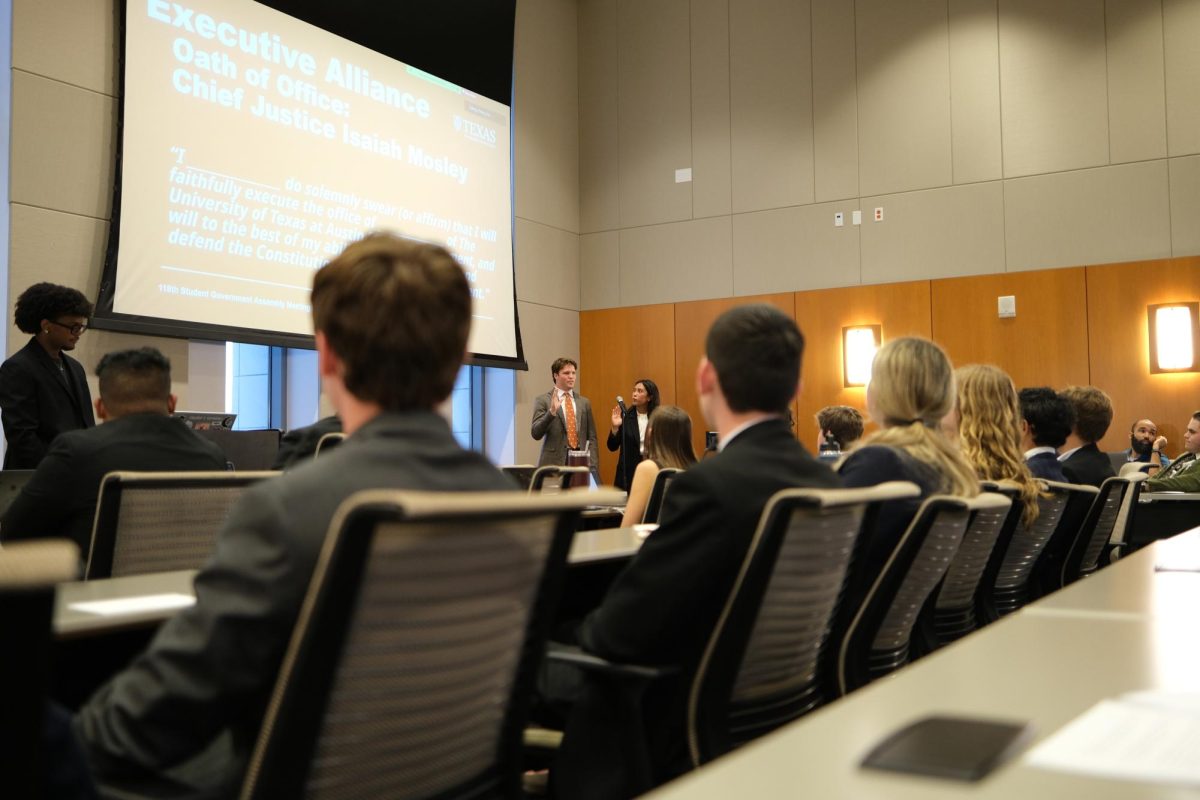Three coffins bearing the inscription “rest in peace” and a life-size doll with a noose around its neck displayed in front of her office were only some of the ways men intimidated Anna Nieto Gomez, former female leader of the United Mexican American Students at CSU Long Beach.
Nieto Gomez’s story is one of many that UCLA professor Maylei Blackwell includes in her newly released book “¡Chicana Power! Contested Histories of Feminism in the Chicano Movement,” which she discussed on Monday at the Center for Mexican American Studies in the Student Activities Center.
Through a series of oral histories, Blackwell tells the “real” story, asserting that women were active in the 1960s Chicano civil rights movement but are largely left out of documented history.
“Women played a tremendous and central role in the struggles for civil rights and in many of the histories written, the men often get more credit,” said Deborah Paredez, director for UT’s Center for Mexican American studies.
Blackwell said she spent 20 years sifting through archives, following paper trails and talking with Chicana women to create the first book-length account of women’s involvement in the movement.
“If we only tell the great male narrative, we do a disservice to the memory of the acts of greatness from everyday people, like the thousands and thousands of Chicanos and Chicanas who spoke out,” Blackwell said.
Feminism started right at the heart of the movement rather than later on, Blackwell said.
Anna Nieto Gomez said she contested the male-dominated Chicano movement by breaking off from it and helping create the Hijas de Cuauhtémoc, one of the first Latin American feminist
organizations.
The word “Chicano” means “the people,” Nieto Gomez said, but she soon realized that the Chicano goals were only for men.
“There was so much hate, it forced the Chicanas out of the Chicano movement,” she said. “The movement failed us.”
Mexican-American ethnic studies junior Marianna Anaya said things have changed since Nieto Gomez’s time, but not by much.
“I don’t think a lot of people recognize that because they say ‘Oh, racism is so over and so back in the day,’ but we live it every single day,” Anaya, cofounder of La Colectiva Femenil, a campus organization for Chicanas, said.
At the event Nieto Gomez challenged historical documents that suggest the “Chicana doesn’t want to be liberated” and told students to continue collecting Chicana stories and documents in order to combat stereotypes that they didn’t significantly contribute to the movement.
“We didn’t have a place in Chicano male-dominated places, but we also didn’t have a place as women of color,” Anaya said. “Even among white feminists we don’t have a place, so that is why we formed La Colectiva Femenil, so that we can have these conversations.”
Printed October 11, 2011 as: Author remembers role of feminists in Chicano Movement


















